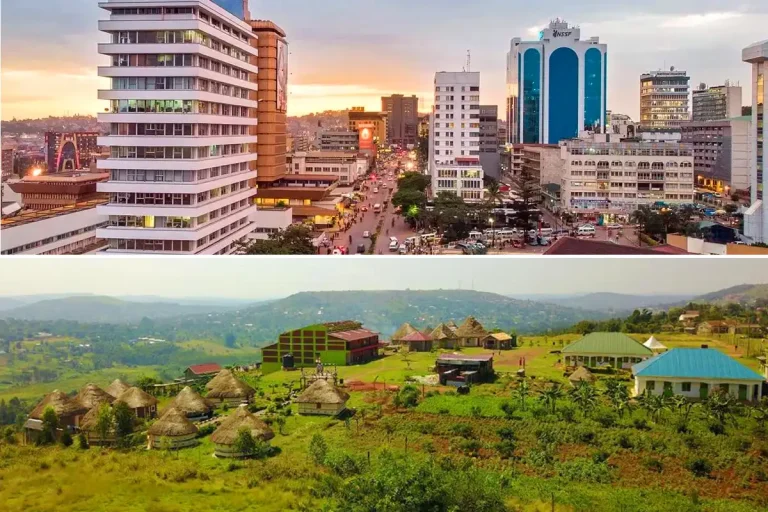City or Village Life in Uganda: Is Kampala Worth It
The debate surrounding City vs Village Uganda remains one of the most relatable discussions among Ugandans. Many people dream of moving to Kampala, the capital city, for work or education. Others long for the calm, affordable, and community-centered life found in the countryside. But which lifestyle is truly better — the fast-paced urban rhythm or the relaxed simplicity of village living?
Living in Kampala: Hustle, Growth, and Pressure
Kampala represents ambition, opportunity, and survival. Every morning, thousands wake before sunrise to beat traffic jams and report to work. The rent is high, the prices keep climbing, and the pressure to keep up never ends. Yet, for many young people, Kampala remains the place where dreams are chased and sometimes fulfilled.
Life in the city has its perks. Job opportunities are concentrated here — in offices, factories, and organizations. The capital is also where better schools, hospitals, internet, and entertainment options exist. You can visit a clinic, send mobile money, grab a meal, and attend a meeting within the same day. The exposure that comes from interacting with diverse people and ideas makes Kampala a hub for personal and professional growth.
Still, this convenience comes at a cost. The city is expensive and stressful. Rent in city suburbs can reach UGX 300,000 or more per month. Add electricity, water, transport, and food, and the bills pile up quickly. Noise, pollution, and traffic jams drain residents mentally and physically. Kampala is full of opportunities, but also full of challenges.
Read Also
Life in the Village: Peace, Community, and Simplicity
Away from the city’s chaos, the countryside offers a slower, more peaceful life. In the City vs Village Uganda comparison, the village wins on affordability and calm. Most families live on inherited land, grow their own food, and depend less on cash. Monthly expenses are low because there is little or no rent to pay, and essentials like water or firewood are easily accessible.
Villages also thrive on community. Neighbours know each other, help each other, and share resources. Children play freely outdoors, and families gather in the evenings to talk under the stars. The air is clean, the nights are quiet, and life feels natural and grounded.
However, this simplicity comes with trade-offs. Job opportunities are limited, and professional growth is slow. Health centres, schools, and financial institutions are often far away. Internet access is poor, and infrastructure development lags behind urban areas. For young people eager to advance their careers or businesses, the village may feel restricting.
Finding a Balance Between City and Village Life
The truth about City vs Village Uganda is that neither lifestyle is perfect — both have advantages and sacrifices. The city builds ambition, offering exposure, convenience, and income. The village nurtures peace, stability, and a strong sense of belonging. Many Ugandans are now choosing a hybrid lifestyle: working in Kampala while maintaining homes or farms in the village.
This balance allows them to earn money in the city and find rest and comfort in the countryside. Weekends and holidays upcountry have become a normal way to escape the city’s stress. It’s a lifestyle that brings the best of both worlds — the hustle of Kampala and the serenity of rural life.
Whether you choose to live in Kampala or stay in your village depends on your goals. If you value career growth, exposure, and modern conveniences, the city offers endless possibilities. But if you value peace, affordability, and community connection, village life remains unmatched.
In the end, City vs Village Uganda isn’t about competition but balance. Kampala sharpens ambition, while the village restores peace. Both are essential parts of Uganda’s identity — one fast-moving, the other deeply rooted. The ideal life is not about where you are, but where your peace and purpose align.

